
Chairman, Bernard Ahiafor, MP, Akatsi South: The clerk of the committee may proceed to administer the oath.
Muntaka takes the oath: I Muntaka Mohammed Mubarak, solemnly affirm that the evidence I shall give before this committee touching the matter in issue shall be the truth the whole truth and nothing but the truth so do I affirm.
Chairman: Thank you very much. Honourable nominee, may you in three minutes tell us about yourself.
Muntaka: Thank you very much, Mr. Chairman. Thank you colleagues, members of parliament. Thank you everyone here and those watching us from home and abroad. Mr. Chairman, like I said, I’m Muntaka Mohammed Mubarak, born and bred in Aboabo, a suburb in Kumasi.

I started school at Aboabo L.A., moved to Calavera International School, then completed at Central International School with middle living students as educators and then common entrance. Proceeded to Tamale Secondary School for my O-Level and then to Tamale Secondary School for my C-Form. Did my first degree at KNUST, Faculty of Agriculture, and also did my second degree, the same KNUST, at their planning department.
By way of education, since I did my master’s and completed in 2004 and became later a member of parliament, I’ve had several executive education, some in Berkeley in California for global health. I’ve had about four different executive education at Kennedy School, notably national and international security, mastering negotiation, senior managers in government, and others. I’ve done a lot of other certificates executive programmes at RIPA.
By way of employment, I’ve been a self-employed person right from primary school, and I’ve always worked through secondary school to be able to fend for myself and support my other siblings, same through the university and almost all my colleagues. When I’m doing the undergraduate, I was teaching all around and doing all manner of jobs just to keep the body and soul together.
After graduating or after the A-Level, my first national service was at Abodomin the Bekwai District, and then my second national service was with USAID.I’ve worked with JICA briefly. I started to be a self-employed individual until sometime around 1999 when I got employment with AdwumaPa Buyers Limited, a licensing cocoa buying firm, where I rose through the ranks to be the head of research, monitoring, and evaluation.
Then I joined Parliament in 2005, and I’ve remained a member of Parliament to date.I’ve had opportunities to do many other things as a member of Parliament, including being the Minister for Youth and Sports in 2009, which was very brief. I’ve been the Ranking on Health Committee. I’ve chaired the Health Committee.I’ve been a member of this very honourable committee for two decades as a member of the Appointments Committee.
I’ve been a member of the Business Committee, Mines and Energy Committee, and many others. I’ve got the privilege to be one of the five representatives from Ghana to represent Ghana in the Pan-African Parliament, where I’ve also served for over a decade.And there, too, I rose to become the chair of the Committee on Monetary and Finance at the Pan-African Parliament. I’ve been the Government Whip in 2013 to 2016, and also been the Minority Whip between 2017 to February 2023. So, Mr. Chairman, in short, I will say this is how far the Lord has brought me.
Chairman: Thank you very much. We’ll commence the vetting. And I have the pleasure to give the floor to Honourable Amankwa-Manu.
Kofi Amankwa-Manu, MP, AtwimaKwanwoma: Thank you very much, Mr. Chairman. Mr. Chairman, let me take this opportunity to congratulate my brother and friend, Muse, as I affectionately call him. Congratulations.
Muntaka: Thank you very much.
Amankwa-Manu: I have a few questions for you. Honourable Nominee, on the 14th of January 2025, there was a letter from the Office of the Chief of Staff, which letter sought to demand for certain information regarding certain persons on government payroll.You are going to be a minister with many agencies under you, with such agencies inviting or have invited applications from Ghanaian young men and women for training.
Between December 7th to January 6th, 2025, that is December 2024 and January 6th, January 2025, we had a government in place. With you as Minister of Interior, with all the agencies under you, and looking at the applications, probably some of them already undergoing training, are you going to discontinue or invite those who are already undergoing training?
As we experience, you know, sometime in the history of this country.What would you do to these young men, women who are Ghanaians, who are going through training to serve this nation?
Muntaka: Thank you, Mr. Chair. Mr. Chair, I’m not privy to the full details of what my colleague is saying, so it makes it very difficult to give very specific answers. But what I will say generally is that I believe that government is continuous and until January 7th, there was a government.
And in my view, every action and inaction of that government is legitimate, except to say that if a new government comes, nothing also debars a government from reviewing whatever actions a previous government has taken, and then puts the best interest of the country forward. So, because I don’t have the details and the fine details of what you are talking, it may be very difficult for me to give very specific answers.
But what I know is that if a government takes an action which is legitimate, obviously another government has every right to be able to review it. But I keep saying, let us always do this in the best interest of our country, because if there is in the best interest of the country, you act, you’ll be acting right. Thank you, Mr. Chair.
Amanwka-Manu: Thank you very much, Mr. Nominee.And thank you for giving me the assurance. Yeah, there’s a follow-up. Yes, yes. The assurance that government indeed is continuous. And I believe strongly that whatever review will be done, will be done in the best interest of our nation.
Looking at what we have, Mr. Chairman, in terms of fairness and in recruitment, would you say that quotas being given on a regional basis to ensure fairness and balance is a good thing? As a minister designated for the Ministry of Interior, would you promote a quota system on a regional basis to ensure fairness and balance?
Muntaka: Thank you, Mr. Chair. Mr. Chair, what I will say with this is that, you know, I’m going to a ministry that has a lot of professionals that are experts in their field. I mean, you can’t doubt the expertise of the Inspector General of Police. Neither will you doubt the Director General of Ghana Prisons and the like. And I’m going to be a team member that will be working with them.
Together with them, we’ll have to review over the last maybe 30, 40 years, or since we started this Fourth Republican Constitution, how have we done it? Has this served a purpose? If there are lapses, we’ll look at it and review them in the best interest of the country. But to sit here and assure you that, oh, we’ll do it based on regional, then maybe we’ll go and then people will say, can we even look at tribal?
Can we look at religion? Can we look at all the other balances? It may be very difficult for me to give you a specific answer, but to tell you that definitely recruitment into the security services is a serious concern for the average Ghanaian, and it requires a review of the process. How do we do it? How do we do it so that it will meet the best standard?
Because remember, in ensuring all these balances, which I perfectly agree with you, because myself, I’m a minority, and I know that if you leave it to the whims and caprices, only the majority will have it, and they will deny the fewer minorities. But remember, in the security services, you are talking about lives and protection of all of us, because the simple mandate of the security agencies is to preserve, to prevent crime, ensure law and order, and protect the average citizen in his or her going about doing their dutiful duties.
So, I can assure you that with this crop of expertise that we have in the ministry, we’ll sit down and look at how best to approach this recruitment process, so that at least, even if we are not able to perfect it, to make it better than it is now.Thank you, Mr. Chair.
Chairman: Thank you very much. I recognise a minority whip on a follow-up question.
Frank Annoh-Dompreh, MP, Nsawam-Adoagyiri: Okay, Chair, I’m grateful. HonourableMuntaka, congratulations. The subject matter raised by our dear colleague, as you do know, is a very popular concern. There is a lot of murmuring and whispering on the same subject matter. Your answers portend as a patriotic citizen, and I have no doubt.
However, His Excellency the President, then candidate, made a lot of promises on review. He spoke to the Free SHS, and he said, possibly it was going to be reviewed. Your colleague, Honourable Ato Forson sat in the same seat you are sitting, and he spoke about review.Can you look into the camera and tell Ghanaians that the context of your review is not cancellation? Can you assure us that your review is not cancellation?Mr. Speaker, I am asking. Mr. Chair, probably I should rephrase my question.
My question to you, my good friend, is can you elucidate on your review? This review has been used by many of your colleagues.The review of the Ghanaians who have been recruited into the security services. Does your review mean cancellation? Can you assure us that the review doesn’t mean cancellation? This is a simple question. Why are you worrying, HonourableMuntaka? He is an experienced man.He can answer the question. Allow him to answer.
Chairman: Thank you very much.May we proceed to answer the question with respect to review of those undergoing training?
Muntaka: Mr. Chairman, my Honourable colleague’s question is legitimate. But, if we go and we are reviewing and we realise that someone didn’t even go to school and he has been put in there, will you recommend that that person should be allowed to continue? If we go and we realise that somebody is physically challenged and he has been put into training for military or for immigration or something that requires somebody who should be very active.

So that’s why I’m saying that to give you a very definite answer would not even be fair to yourself because then I’ll be doing simply, oh, let me just pass this and then go and do another thing.But I just swore an oath. And believe me, everything that I said in the oath, I meant it. And I’m not going to deceive anybody by sitting here telling you one thing that will sound sweet in your ear and go out there and do another thing.
What I’m saying is that I can assure you I will be acting on behalf of His Excellency, the President, His Excellency, John Dramani Mahama, and he’s a very fair-minded person. If you check our manifesto, specifically on paragraph 182, he said that we need to do everything humanly possible to put away excessive partisanship in the recruitment process.
So, all these things are things that we’ll look at with the expert that have been in the police service, whether prison service, the national fire service, and all the agencies. Some of them have been there for three decades. They’ve learned so much. They’ve seen it come and go. And if we sit and dispassionately decide that, look, what can we do in the best interest of our country, I’m sure we’ll be able to come up with something that will meet the expectation of the majority of us.
Instead of maybe while watching or sitting here, when I don’t have all the details, to promise you something, then I’ll only go to the ministry and realise that what I promised honourable members of parliament is not something that can be achieved. Or maybe I could even do far more.
So, I’ll be grateful that, I mean, you know me. We’ve worked together. We’ve done a lot of things together with all humility, Mr. Chair. When I say we’ll do it in the best interest of this country, I meant we’ll do it in the best interest of this country. Thank you.
Chairman: Thank you.Any further questions Honourable Amankwa?
Amankwa-Manu: Thank you, Mr. Chairman. Honourable nominee, I’ve just been told that I have one last question. And it borders on promotion.There have been complaints from a lot of officers, i.e. police, and the rest, of officers not being promoted on time. Some believe that such delay in promotion is due to the fact that officers are not transferred also on time.
People are left to stay at one unit, one place for a very long time, not creating the room for others to also go through the mill. As the minister-designate for the Ministry of Interior, what would you do differently to ensure that officers are promoted on time? And if there is the need for an officer to be transferred, that officer is transferred ahead so that we can have that vibrancy in the system. Thank you.
Muntaka: Thank you, Mr. Chair. Mr. Chair, I can assure my colleague that these are some of the comments I’ve also heard about this same promotion. And it’s worth looking into those concerns. I mean, like I said, this agency heads are experts in their own field, and we definitely have to look at. One of the things yesterday when I was taking a briefing from some of the executive heads was that, for example, when the regulation says you should stay in a place at least four years, people assume as if it is at most four years.
So, when the thing says at least four years, it means that it can go beyond four years. But others assume that when the regulation says at least four years, the moment it is four years, you must mechanically be moved to the next level. And yesterday when I was looking at some of the agencies, their own organogram, and the kind of vacancies that they have, you could see that, yes, there are some places where people need to fill.
But one of the things that I also heard, which I will look into, into realities, is that almost everyone, especially the Ghana police, almost everyone that needed to be promoted had been promoted. I will look into it, because where I sit now, I’m a designate, and I don’t have all the full facts, but it is a lot of concern that I’ve also heard, and I think it is worth looking into.
One thing I can assure you, my colleague, is that I believe that we need to codify the processes, document them. I mean, I work largely in the private sector. You know that annually you’ll be reviewed, you’ll be assessed, and the assessment will be shown to you, yourself. You agree with some, you have the opportunity to question some, and at the end of the day, it will be found.
So, the way sometimes our security services, I don’t know how they do it, but like I said, because they are expert, we can learn from other jurisdictions how they do it. The way it is mechanical, some go to sleep, others are breaking their back to help the system, and then everybody just wake up, oh, it is time for promotion, then we all get promoted. I don’t think that itself encourages people to give in their best.
So, we’ll look at how to do it in a way that it doesn’t demotivate the men and women, but also make sure that it is based on merit and not just giveaway, because they say at least four years. Yes, because if it is on merit, someone could do two years and get promotion because of some specific thing, but you need to document those process so everybody knows that we all know, if I’m able to do four times in Parliament, this is how it can happen.
If I’m able to do A, B, C, D, this is the benefit that I can get. I’m sure when we are able to put all those things on paper, and it is known, and people are educated very well on it, when those promotions are happening, I’m sure people will be largely satisfied. Thank you, Chair.
Chairman: Thank you very much. A follow-up on the last question? On the promotion of the officers?
Amankwa-Manu: Yes. Very brief, yes, sir. I would like to avert the mind of the nominee to the police service policy, a policy to the effect that officers – I stand for correction, though, because I can see a lot of police officers here.Officers do not stay or remain at one post or unit for more than five years.
I believe that the honourable nominee, when he assumes office, I believe he would. He said he’s not a master, but I believe that he’s a master in his own right.I believe that when he assumes office, he must have this policy to ensure that officers, if it is time for them to be transferred, they move so that others can also grow. Mr. Chairman, with this, I would once again like to congratulate my friend for his nomination. I have confidence and trust that he will do that which is right for this country.He is a man. What you see is what you get. Thank you.
Muntaka: Thank you very much. Well, Chair, what I will simply say is that, for example, because he mentioned the police, there are three groups within the police service. As you may know from Article 200 all the way to 205, where it talks about the Ghana Police Service, it is the President that has the sole prerogative to promote individuals from ACP upwards.
That’s Assistant Commissioner of Police upwards. Then you have from, I think, what do you call it, Superintendent up to the ACP, too, can be done only by the police counsel. Then you have from the recruits all the way to Chief Inspector. That one is done by the police administration.
So, because of these three tiers, some largely are not in the hands of the senior men. But, like you rightly said, these are things that are worth looking into. And I can assure you, my honourable colleague, I will ensure that fairness and equity is done. Thank you very much, Chair.
Chairman: Thank you so much. I will proceed to give the floor to Honourable Dominic Nitiwul.
Dominic Nitiwul, MP, Bimbilla: Welcome back to Parliament. Yes, but welcome back to Parliament. I’m not in a Naaba.The chiefs will charge me. My honourable friend, HonourableMuntaka, the nominee, I’ve known you in Parliament over the last 16 years. I worked with you in the opposition for eight years.I also worked with you in government for eight years.
Hopefully, once God gives us life, we’ll work together for another four years. You in government, me in opposition.Then after that, we’ll exchange roles again. But let me congratulate you, sincerely. And I’m very happy for you.There are reasons why I’m happy for you. You know them. So, I’ll congratulate you sincerely.I’m going to ask you public interest questions.
Just simple, simple public interest questions. Honourable, my first question is about professionalism of the ten agencies under your ministry.All of them. I want to find out from you. And to say that whilst asking this question, particularly the Ghana police, in ranking them over the period, I would say in West Africa, over the last four… improvements, we don’t just want them to be the best in West Africa or Africa, but the world.
So… because of those same concerns. How are you going to ensure that motorists are not stopped on the way and harassed by agencies under your jurisdiction or your ministry? Either on the roads, in their houses, or any other place. Also, the few ones who stop people and pick something from them, money in particular, how do you intend to ensure that we eradicate that forever? It should not be part of it.
That’s the professionalism I’m talking about.Added to that, it’s still part of professionalism, so it’s one question. Added to that, how do you intend to ensure that agencies that work under your ministry, when it comes to land issues, only act lawfully, but not because somebody has the might or somebody has the stature in society. These two things, they are all around professionalism.And there are public interest things.
People suffer a lot in this country because of these two things. Motorists, people get beaten on the roadside.I have serious examples that maybe later I will discuss with you. But I want you to tell the public how you address these issues, so that by the time you leave office, these issues are not there any longer. Thank you.
Muntaka: Thank you very much, Mr. Chair. I mean, my horrible colleague has been a defence minister for eight years, so he really knows what he’s talking about. Yes, I agree with you. You and I have been in the Pan-African Parliament, so we travel across the continent. And sometimes when you get to some other countries and you look at their police, you then begin to appreciate what you have, despite the challenges that continue to confront us.
I agree with you. Fortunately, in the transition document, it shows that we’ve started using body cameras at the police. Eight hundred is in their hands, and about 30,800 is being procured. And according to the fact that I saw, it says that the procurement process is complete.One of the things that I would do to the police council, remember, I’ll just be a member of the police council, where truly with these experts, we’ll push and fashion how to safeguard all of us.
We’ll ensure that if you are a police officer, that you have to step out. Then you have to have your body camera on. So that it takes away all the ambiguity and the troubles. Because when you put the body camera on, everywhere you are, you are being recorded. Not only you, you and your environs. So that if you are on the road extorting money, it will show.
If you are brutalising others, it will show. Whatever other thing that you are doing, the body camera will record and show what you are doing. So, I believe that the hierarchy of almost all the agencies are also concerned when they hear some of these complaints. And they’ve been making frantic efforts to make sure that it goes down to the barest minimum.
And we must also admit, in what you call some time now, you don’t see much of this harassment on the road. But you still see packets of it. We must do everything to make sure that they remain professional. And the only way to take this ambiguity, in my view, Honourable Chair, is to have the body camera on.And then insist and make sure that everybody adheres to it. Secondly, with regards to the land issue, you, all of us have been victim.
I’ve had an incident of where you legitimately acquire a land and then you are called that, ah, some guys have come on and then you call the police.The police that you call are on their way to the place. You get there and another person I’ve called, there’s police, also called police, and the both are coming from the same station, and I was wondering how did this happen, that I will call from one station, police move, the same station, another person calls, they move, and they came and met there, two of them, two vehicles, and they were all from the same station.
I said, okay, then let us all go to the station.And yet, me, who have legitimately acquired mine, I’m holding my document. The other person who called the others, he is not there, but he was able to call the police to come. And then you go to the police, now they realise it is you.Who is the other person who called you? Oh, no, no, that one, you see, I cannot divulge that to you. I said, what is that?
And then, so what you are saying is a legitimate thing, and you’ve seen people lose their legitimate land. And, I mean, with this land, I believe that, Mr. Chair, I know when the Minister for Lands, the nominee for Lands comes here, we may have to fast-track the proper documentation of all the lands in the country, because they are digitalised.
I can tell you, and I’m sure Chair is aware of this, where someone in trying to beat the system, went and backdated the document, and said that he bought the very land that I said I bought in 1995, but he paid the monies in Ghana cedis. When in 1995, we didn’t have Ghana cedis, and that’s how the person got caught, because he said he paid it in Ghana cities.
And in 1999, there was no Ghana cedis.So, you see these things are really happening, but like you rightly said, with professionalism, these are experts. I would demand that the professionalism, that the standard that they’ve set for themselves, they should hold themselves to it.
And I can assure you, Honourable Colleague, that I know it’s not going to be easy, because that will require a change of attitude, change of behaviour, and mindset but will dare and make effort to get them to be professional.And I’m sure once they are professional, most of these things, even if they don’t fizzle away, you will have very minimum of it. Thank you very much, Chair.
Domnic Nitiwul: Yes, just one little question on the professionalism. Will you consider setting up, I know the police already have it, immigration, all the agencies have it, but will you consider setting up a complaints unit under your ministry itself and uplifted to the status of a director, where citizens can go and complain direct, without being intimidated, or they have that feeling that they will be intimidated.
If there’s not one, will you consider doing that? Muntaka: Mr. Chairman, I mean, this is a very legitimate thing.I have had that serious concern. You know, currently, what the police, what they do is that they, when something happens, then the police themselves will say they have the police professional, what do you call it, they have the PIPS, where they will be investigating the issue. I believe that we need to have an independent body that composes with other persons, not necessarily police alone, investigating these complaints.
The Standard Bureau, the Independent Police Standard Bureau, that we’ve seen in other jurisdictions, we need to be able to do that, and together with the hierarchy of the police administration, we will take steps to do that. And, Mr. Chair, my colleague was right. I remember when the seven young men in my constituency were shot and killed, and then, I remember that then Minister of Interior came to Parliament and said, we are going to investigate.
I said, I’ve had many of that, that have been investigated by the police, and I never heard anything. I insisted, and then that push for an independent committee to be set, which was chaired by a high court judge, and the results were different, because it came out that there were no armed robbers, they were just killed, and we had to even pay compensation.
So, there are examples of when we insist that the police alone should not investigate, actions have been taken.I must also admit, there have been instances where the police themselves also investigated alone, and I’ve been able to find culprits and punish them. But I believe that if we are able to have an independent Police Standard Bureau, or it’s like, like we’ve seen in other jurisdictions, it will put the trust of the ordinary citizen more to be able to call and make the complaint, than just to leave it with the police.
And not only the police, it’s the same with the prisons, the same with the National Fire Service, the same with immigration and other agencies that are under the Ministry of Interior.So, I can assure my colleague that we’ll do that. But whether to do it in the ministry is something that I will look at its possibility.
Maybe a director to ensure that those agencies have, because remember, these are professional bodies that are well-trained and they are experts.All we need to do as a team is to ensure that they are acting right, and they are doing what is right. Once we get them to do that, maybe I can designate a director who will be supervising to ensure that all of them set this thing.
But I doubt whether it will be useful to have it at the ministry, where if something happens in the prison, you call the ministry.If something happens at the fire service, you call the ministry. At NADMO, you call the ministry. At all the others, you call the ministry.I think it may be too difficult, but we can get these institutions to do that and make sure that those committees or bureaus that they may set will be working and working effectively. Thank you very much.
Dominic Nitiwul: So, the second question on the second question is also a public interest question. Ghana has been consistently ranked by many organisations to be the second most peaceful country in West Africa over the last five years. It tells you that agencies under your watch and others who work with them are doing a very, very good job.
The public will want to know from you, or I want to know from you, what steps, specific steps, are you going to take that will ensure that Ghana does not regress backwards to those olden days when people are free to sleep in their houses, people are scared because maybe armed robbers are coming to attack them, or highway robberies will be on the increase.
And secondly, how will you ensure that the country, Ghana, is still the destination for many, many people because it’s peaceful? Because that’s what we sell. We don’t have the population like other countries, but we sell ourselves because we are very peaceful people and our country has been peaceful.People go out and cry in the night. They are okay. I want to find out how you, because your ministry, you have agencies that have the direct responsibility for law enforcement.
If they work, we are okay. If they don’t work, we are in trouble. So, I want to know the specific steps you are going to take with your agencies to ensure that they get it, including steps to ensure that morale within your services is high, including steps to ensure that morale within the services is high, because if morale is high, they’ll give you the best.So, link the two. Thank you very much.
Muntaka: Thank you very much, Mr. Chair.I will start with the second one, which is easier to talk about. I mean, I’m happy that we all know that morale, once their morale is high, I mean, they’ll give you the best and obviously, having known the finance minister and we worked for all these years, I will do everything humanly possible to let him appreciate this, that he will be able to rake in more money.
If the agencies under the ministry that I’m going to be a team are working very effectively and the country is so peaceful, people are willing to come in and invest, he’ll be able to rake in more money.So, he must ensure that we’re able to support them with their emolument, allowances, and what have you. But I know morale is not only about money.
It’s also about fairness and just.If you have a system where everybody believes that I’ll be treated right, even when I go wrong, when I’m going to be punished, it will be measured. It will be based on the level of my mistake or my crime. It will raise the morale of people.So, I’ll be looking at that and I’ll put a lot of premium in trying to get the team that I’ll be working with to ensure that the morale is high. But when it comes to the specific things, Honourable Colleague, you are the Defence Minister.
I keep saying this.And you know we have the National Security Strategic Plan. And in that plan, ours is to have, when I say ours, I’m talking about where, by the grace of God, if this committee approves of me, with my team, ours is to ensure our internal safety. And you know that we need to have the national policing strategy by the Ghana Police Service.
We need to be able to have the land borders strategy for the Ghana Immigration Service. We need to have the narcotic control framework for the Narcotic Control Board. We need to have the small arms and live weapons strategy for managing small arms and guns.We need to be able to have a national strategy for, what do you call it, the prisons.
The National Fire Service fire preventive strategy. These are the specific things that I will task my team that everyone who is heading his area should ensure that that strategy is in place and that strategy is being followed.If we can have that strategy, which is there, and I know you have been at the Defence Ministry, and you’ve done a lot of work already, and the document is there.
I, as a member of the team, will just be coordinating to ensure that all the team members are doing their work right. And we’ll have a timetable that shows, at every point in time, where we should be with our strategy, and what they are doing specifically within that strategy, and periodically review and monitor progress.
Once we’re able to do this, Chairman, I can assure you, we’ll remain safe. People will be willing to come and invest in our country. There will be better opportunities to be able to meet the vision and aspiration of His Excellency John Dramani Mahama as he sends me there to represent him.
So, this will be the specific things that we’ll do to make sure that every one of them, not more, will have, as the National Disaster Management Organisation, their strategy on prevention. How do we, when disasters happen, when emergencies come, what do we do? All those things, we’ll make sure that it’s in place, and be monitoring to make sure that they are following through. Once we do this, Mr. Chair, I’m sure we’ll be safer, and our country will remain safe.Thank you.
Dominc Nitiwul: Mr. Chairman, so I’ll ask my last question.The security, the reason why I ask about this is also because of the happenings of late, where young men invade places and stop people. That’s why I ask this question as well. So, take, put that at the back of your mind.Mr. Nominee, the last question I want to find out from you has to do with the recruitment. There are many people out there who think, wrongly do, that, oh, you don’t need certificate to enter in this, or the security service.
You can just go, just work for a political party, and you go, you can be recruited.I’ll recruit our boys, do this. I want to ask you a specific question. Will you recruit unqualified people into the Ghana Police Service, into the GhanaImmigration Service, into the fire service, and other security services?
Muntaka: Unqualified persons, no, no, no.
Dominic Nitiwul: Thank you very much.
Chairman: Honourable members, I will give the floor to Honourable Mahama Shaibu. You have the floor.
Mahama Shaibu, MP, Daboya-Mankarigu: Mr. Chairman, I’m most grateful. Leader, HonourableNomni, congratulations. A very well-deserved appointment. One of the critical agencies under your ministry, in the criminal justice delivery, is the prison service. They have a huge responsibility of safekeeping, reforming, and transforming prisoners.
In recent times, we’ve had very negative news about these three key responsibilities. What measures, what plans do you have to reform the prison service generally, to meet the very basic responsibilities they are charged with? Thank you.
Muntaka: Thank you, Mr. Chair.Mr. Chair, as a country, and as part of our national security strategy, we have the prison reform strategy for the Ghana Prison Service, and I must admit, even from the briefing, the few briefings, when I was preparing for this, today’s hearing, that I’ve seen, honestly, they’ve been left to be deep orphans. Sometimes, all of us tend to forget about them, and that could be the weakest link in our strategy to keep this country safe.
I can assure you that I am going to pay a lot of attention to the Ghana Prison Service as part of the team member.One of the things, if you look at the manifesto of the NDCs, His Excellency John Dramani Mahama’s vision was to even change the name from prisons to corrections, so that even the mindsets may begin to change.
But I can tell you that there are so many examples that we can see around, in the UK, in Singapore, even in our own neighbouring East Africa, Kenya, where they are using private partnership. They are using PPP, public-private partnership, to deal with most of the issues in the prisons.I’m reliably informed that when you go to Kenya, every number plate that you see on the car is coming from the inmates, because they give opportunity for industry to build these factories within the prison.
It serves multiple purposes. Training of inmates, it gives them skills, it gives them income, and obviously, because they are prisoners, the income or the payment that are made are not as if the factory was set up outside.This is an area that we need to look at, because there’s one prison, for example, that has vast land. You go to Ankaful, there’s vast land. If we are able to do that, with government support and the rest of us in the multistakeholder nature of what we are doing, it is going to help them, because currently, even feeding, sometimes, when I heard yesterday, I was shocked that we can treat each other that badly.
Today, the rationing for a prisoner in Ghana is GH¢1.80p. For the whole day, GH¢1.80p. And I doubt, with the greatest respect to these members of the committee and those listening to us, even the cats and dogs in our houses, how much food do we give them? That we put our own compatriots, because of one mistake or the other, in trying to correct them, we feed them with GH¢1.80p, and expect that they will not have communicable diseases, they will not have skin diseases, they will look healthy, they will come out reformed.
No, no, no. We are rather putting them in an area where we are expecting them to come out more criminal than they went in. And that is why I was giving Mr. Chairman, this committee, the assurance that I will pay attention.And let me also take the opportunity, Mr. Chairman, to thank the Pentecost Church for the wonderful thing that they’ve done in supporting the Ghana Prison Service. They are helping them to build almost four or five prison camps to enable them to embark on agriculture, what we call farming and other activities.
Had it not been the prison agriculture project, I doubt even if we would not have the huge crisis in our hands, because the prisoners would wake up and there would be no food.And I can imagine how many prison officers we have that can prevent them from crashing the gate. So, I think it’s a very serious thing, and I assure my colleague I’ll pay attention to it. The other thing is that, you remember, His Excellency John Dramani Mahama, the last time we had the opportunity, between 2013 and 16 or 17.
This remand prison project that he embarked on in Nsawam, to separate remand prisoners from the main prisons, unfortunately, that project is still not completed. It is something that I will pay attention to, so that through that we can separate, not only in Nsawam, but in other prisons, separate remand prisoners from the other prisoners. So, it makes it easier.
If every day you wake up and you see them as remand, they are under remand. They are not normal prisoners. You cannot forget about them, because then you know that you have a number of people in the remand prison.The other thing that I think we can do to really help the Ghana prison service is that we have the high court at Nsawam, where the court is so close to the prison.
It takes away the burdensome of trying to move them from one point to another. Already, we are not allocating so much money to them.The little they have; they have to sometimes beg the Ghana police for vehicle to collect inmates to court. And because of those challenges, remand prisoners get locked up and got forgotten. So, the high court just by the Nsawam prison is so helpful.
We’ll see how, together with my colleague from the Attorney General, how we can work together with the Chief Justice to see how we can replicate this in some of the other prisons like Ankaful and others that have larger inmates. And the last one is about the Justice for All. You know, the Justice for All project was one that was so helpful, where judges move into the prisons and deal with especially remand cases and get expedited.
I think that is another thing that, together with my colleague, the Attorney General and the Chief Justice, will look at how we can use that Justice for All to decongest our prison. I’m sure when we take these strategies, partnership with the PPP, ensuring that we feed them well, help them to get skills, and what have you, I’m sure it will lessen the burden that we are putting on the men and women who are keeping them and also our compatriots in a very dehumanising manner that they find themselves. Thank you, Mr. Chair.
Chairman: Thank you. Any further questions? Before you come in, I will plead with the Honourable Nominee. Just be brief in your answers.
Mahama Shaibu: Mr. Chair, the Honourable Nominee has information overload. Thank you, Chairman.All said and done, except and unless you are incarcerated life in prison, you will eventually come out. Reintegration has been a big challenge for most prisoners who are out of prison. Because of societal norms, they find it difficult to even live within the same community they were picked up.What plans would you have to promote a process of rehab, reintegrating prisoners into society when they are out of prison? Thank you.
Muntaka: Thank you, Mr. Chair. We will work multisectoral, especially with the national media, what do you call it, there’s the National Media Commission, the NCC, National Commission for Civic Education, because sometimes what we are saying, you never know how real it is until it’s getting to someone closer to you.I remember when we were young, one of our relatives was sent to the Kumasi prisons. I think he did about three years or four years. When he finished his sentence, my late father went and brought him home.
It’s like as if our father has brought some kind of demon in the house. It’s that everybody keeps looking at him in a way, before we realise he left. And unfortunately, some months later, he was killed by the, what do you call it, by the rail line, in the Dagomba line, and we had to go and pick his body.But when he came back, if he had been welcomed as a member of the family, I don’t think he would have sneaked out to go and continue his odd ways.
But the other thing also is that, you know, we have young people also in the prison. Some of them write their BECE there, some write their WASSCE.I’ll be talking to my colleague and leader, Honourable Haruna Iddrisu, the Minister for Education, the possibility of setting up the TVET institution within the prison.
Because you see, when you come out and you have a skill, even if those whom are not really welcoming, but you can find a job and every day get up and go, it minimises the trauma that you are going through. I think together with this and the team that I’m working with, who are experts in this area, I’m sure if we get to implement some of the things that I’m talking about, we’ll see huge improvement in the kind of stigma that goes with just being a prisoner.Thank you, Mr. Chair.
Chairman: Thank you very much. Your very last question.
Mahama Shaibu: Very much so, Mr. Chairman. Leader, I know you already mentioned feeding. 1.8 Ghana cedis, woefully inadequate.Indeed, you cannot even buy an egg. That is really serious. Now, tied to that one is overcrowding, and you also touched on it a little bit.But tell us, apart from the churches that you have applauded for coming in to help as part of their corporate social responsibility, what plans would you have in tackling these two issues? And on that note, let me wish you Allah’s blessings.
Muntaka: Thank you very much. Mr. Chair, I take this opportunity to call on otherorganisations, Muslim organisations, other Christian organisations, other non-governmental organisations, to see the inmates as human beings just like you and I. Because one thing that is real is that if we continue to rely on GOG, we’ll only be talking about the problem.We will never be able to deal with it because of how tight the kitty is.
But if we all see that, yes, these are our own brethren, but for one reason or the other, they find themselves there, and we are willing to assist, I’m sure this will improve. But secondly, we need to also be exploring public-private partnership.I know that most prisons in America are private. People build a prison, and the government rents as a way of decongesting, having in mind all the security concerns, making sure that it is good to keep and safe, and do not tamper with the national security strategy.
They build it to meet the standard, and then government rents.That is a possibility. Some of the agencies I’ve seen in the briefing are sitting on very good prime land, and they are now using it in exchange for some facilities. This is also an area that we can also explore, because then we would then be able to get these things built either through our own benevolence or through this public-private partnership and decongest.
And then also, you know, the prisons are in categories. We have maximum, medium, and whatever. We need to be able to do the separations very well, or for lack of better word, for the suffocation, where you classify them properly, because you may go to a place like maybe Ejura and it’s not congested, but you come to Nsawam, it’s sopacked, or Kumasi.
Meanwhile, the kind of prisoners that you can keep in Ejura, some are in Kumasi prison, and you are keeping them in Kumasi prison, where the place is congested. When Ejura is not congested, we need to look at that, and together with the team that I’m going to be working with, we’ll be looking at how to get all these things so that we decongest our prison. Thank you, Mr. Chair.
Chairman: Thank you very much. I will now give the floor to Rita Naa Odoley Sowah.
Rita Naa Odoley Sowah, MP, La Dadekotopon: Thank you, Honourable Chair.I wish to congratulate my leader for his nomination by His Excellency John Dramani Mahama to the Ministry of Interior. Congratulations, Leader. Leader, as we are still on the prison service, they are my constituency, and there is one issue that I have seen ongoing there. We’re talking about inmates, but I want to talk about the prison officers.
Their barracks is being pulled down.Officers have been made to go and rent outside. What plans do you have? In the name of public-private partnership, what plans do you have? Is it that after the construction, the officers are going to be brought back to the barracks, or they are going to still remain in town? Because sometimes they have to work late in the night, and I believe being in the barracks will be a good thing for them. So, what plans do you have to ensure that we have a barracks for the prison officers?
Muntaka: Well, thank you very much.What we are talking about hasn’t come to my notice, but definitely it’s something that I have to go and look at. What I know with the public-private partnership is that before they even pull down that building, they will have built a standard facility where the officers will move in before they will even come to demolish this one.
So, if you have a situation where that has not been done yet they are pulling down that may be wrong. But I will not be able to say tentatively that what you are saying whether accurate or not. But it is worth looking into and I can assure you that I will definitely look into that chair. Thank you.
Rita Sowah: Thank you, Chairman. My second one is, what measures will you implement to ensure fire service responds promptly to and effectively to fire emergencies? My reason for asking this one, recently in Saboba Senior High School, there was a fire outbreak in the girls’ dormitory.
I watched on TV and I was very sad because the fire service went in there and their equipment were not working, and so they had to rely on buckets of water to quench the fire.And I think that is not the best for us as a nation. What measures will you put in place to ensure that the fire attendants, either they’ll have more or whatever equipment they are using, will be maintained properly to serve us well? Thank you.
Muntaka: Thank you, Chair.This is another orphan within the team, in the team that I’m going to be part, this is one of the serious orphans. And I can assure you that when I was taking the brief, I felt very sad, too. And it’s an area that, Mr. Chair, I’ll pay a lot of attention to, as all of us know.Just as fire is good to cook, fire is also good to destroy.
And the bottom line is that, I’m sorry to say this, Chair, all of us just think that God will take care of emergencies, God will take care of the negative things. Once every morning we wake up and we pray, everything will be okay.We do not just don’t want to follow through with our strategy of what if there’s fire, what do we do?
And Mr. Chairman, with a greater respect, I’ve been in this house for about two decades, and even this room, I’ve sat to do this, the assignment that you are doing, several. May God forbid, even now we hear a bam. We just only hear agyeeii and we’ll all be scattered.Nobody will know where to pass. Nobody is telling us even where we are.
In case there’s an emergency, where to pass? There are no signs, there are nothing.Most of the extinguishers that you may see around, are they really working? Nobody knows. Until there’s fire, then you go and lift it and realise that it is empty. Because we are not following through with the national strategy on fire prevention, which is part of our national security strategy.
One of the things that you notice is that in the briefing, I realise that since 2015, there are about 2015, 2016, there are about, government has not been able to procure any major equipment, apart from just about three hydraulic, what do you call it, ladders. No fire tender has been procured in the last nine or ten, almost ten years. So, what it means is that you and I are using vehicles.Even our vehicles that do not carry the kind of load that their weight entails.
After ten years, how easy is it to use that vehicle? You wake up and come, try to start it, it will not. But that’s the kind of virtually, for lack of a better word, obsolete equipment that we’ve left them with.And we expect them to be able to use it. And sometimes, unfortunately, with the citizens out of emotions, we try to even beat the fire officers. Because they’ve run to the place, then they are trying to start their gadgets, it’s not working, and then we say, ah, you see, the fire is going on, look at what the fire service guys are doing.I can bet you they are also not happy with the kind of equipment.
But that is what they have. And because they are obsolete, the time that you need, that’s when it fails.But one of the things that, by the grace of God, as part of the team, I will be doing, together with His Excellency, to be able to meet His Excellency John Dramani Mahama’s vision for the Ghana National Fire Service, is to ensure that we retool them, just as we stated it in our manifesto, on page 186, thereabout, we retool them, we make sure that they have the necessary equipment, so that they will be able to protect us when the need comes.
Look at the kind of market fires that we are having. It’s so sad that the markets are built, because they are with the local authority, they just don’t care about fire certificates.Many of us here, people come to my house, and when they see the fire, they say, hey, now this one, what is that? Isn’t that spoiling the beauty of the house? You are talking about your safety, and you are talking about beauty.
So, I think that all of us need to be very conscious and mindful. But I can assure you that, Honourable Colleague, this is an area that has been left as an orphan, and will definitely, and the sad thing is that with them, there is very little IGF they can reach.So, it makes it more difficult for them.
But by the grace of God, when this committee approves my nomination, and I get the minister to join the team, we will give it our very best to retool them so that they will be able to protect all of us. Thank you, Chair.
Chairman: Thank you very much. I recognise a follow-up question from Jerry Shaib.
Ahmed Jerry Shaib, MP, Weija-Gbawe: Thank you very much, Mr. chair. HonourableMuntaka, congratulations. Thank you. Just a follow-up.In my constituency, Weija-Gbawe, the fire tender has not worked for 13 years. I’ve heard you give assurances.
But I’m also thinking, do they get risk allowance, and how much are we thinking of upgrading that, if at all? Because I witnessed the fire gut a property in Gbawe. We had to call the next constituency, Anyaa-Sowutuom, to furnish this with the tender. At the time the tender came, the fire had already gutted the property. First of all, how do you intend to ensure that this is properly and comprehensively taken care of?
Bearing in mind the fire officers who take the risk to go, like you rightly stated, some of them are actually ostracised.When I was there, they threw stones at us. So, I just want to know how you intend to deal with that comprehensively, and if you are giving assurances, whether you have intentions of giving us some deadlines.
Muntaka: Thank you, Mr. Chair. Mr. Chair, I really wish I could give assurance and even give timelines.And believe me, the timeline I have given would have been yesterday. Because these are institutions that are really suffocating. And I’m very happy that you brought a very important aspect of their challenge.The risk. Officers are dying because of inhalation of substance, what do you call it, smoke and what have you.
Sometimes they get burned.Sometimes they fall and get injured. And when they do this to protect us, we don’t even forget that we need to take care of them. If you care to know, the Ghana National Fire Service does not even have a clinic of their own.They fall on the Ghana Police and the Ghana Health Service. And sometimes the bills, because of the refund, the delay in releases, these hospitals do not even want to receive them.
So, imagine a fire officer wakes up from his house, just like you and I have done.Come to work, go to risk his or her life to try to protect us. Then he or she gets injured. We don’t have a facility to take care of him or her.They try to go and borrow money to get help in other places. It takes months for us to find. So, one of the things that I can assure you is that because we have part of the national security strategy, we have a strategy for prevention of fire at the fire service.
That encapsulates almost all these things that are in there. The answer that I gave earlier, I will ensure that we follow through. The team members, everybody should follow through with what is in the strategy.Because if we follow the strategy, we will not be sitting here talking about some of the things that are there. Because those answers will come by themselves. So that’s the assurance that I can give you.Thank you, Mr. Chair.
Chairman: Thank you very much. Your last question.
Rita Sowah: Thank you very much, Mr. Chairman. Honourable nominee, my leader. Having worked with you for four years in Parliament, I believe in your interpersonal skills.And I know it’s going to come to bear when you go to the ministry. I want you to assure us as members of Parliament that we will not come and queue too long at your door when we come to visit you.
Because some of us have experiences where you go to visit a colleague minister.You have to wait for about three hours, two hours. And I don’t think that is the best. And so, on that note, I want to wish you congratulations and the very best on your new appointment.Thank you.
Muntaka: Thank you very much, Mr. Chair. I’m sure everyone around this table who have been in this house for the past four or eight or twelve, when I was government whip, no MP knocks on my door.The instruction for my secretary is that when MP comes, that is not your business. Whatever I’m doing in there, you let him or her come in. It is for me to say, oh, Honourable, can you give me five minutes or ten minutes, so that at least I know the MP is there.
It is not the business of my secretary to tell the MP to wait. I can tell you and assure you, my sister and colleague, I will take the same attitude to the ministry. When you come to my office, you will not have to wait.If you have to wait, maybe it’s because you yourself will see that I’m doing something and I’m able to give you time that if you have to go and come. But not to just come and the secretary will just tell you, wait.
Because instructions I always give, just as when I was the chief whip, the instruction is that no MP comes and you, secretary, tell the MP what to do.Yours is to just tell the MP, go. When the person comes in and the person sees that whatever I’m doing, if I tell the MP, oh, I’ll be done in an hour, I’ll be done in 30 minutes, I’ll be done in two hours, then the MP decides, oh, then, Honourable, I’ll go and come or I’ll wait. But not for you to let the MP be waiting when I don’t even know.That assurance I can give you. Thank you, Chair.
Chairman: Thank you very much.I will now give the floor to Honourable Patrick Yaw Boamah.
Patrick Yaw Boamah, MP, Okaikoi Central: Thank you very much, Chair, andcongratulations. Leader, let’s do some business with the Narcotics Control Commission. It is estimated that about $21 billion will be generated from this business of medicinal cannabis.Last Parliament, we approved of the NACOC Act. And you are supposed to, God willing, insha Allah, you’ll be approved. The Minister is supposed to give effect to an L.I. towards the operationalisation of that very important law.
Ghanaians and the world will want to know, since it’s a very big trade and you require a lot of investment in there, we want to understand your strategies in licencing, regulation, and implementation of this very important law towards the realisation of the objectives of this Act for the good of this country, to drive lots of forex to show up our economy and our currency. Thank you.
Muntaka: Thank you very much, Mr. Chair. I’m very aware of this bill. I remember the controversy that took us to even the Supreme Court, and then we came back to fix it.And it was levelled the regulation that was supposed to be laid, and then get the 22 answers in this. This has not been done. My take on this will be, when I join the team, obviously the NACOC board will be there.
The experts there will be there. Obviously, the new President, His Excellency John Dramani Mahama, will be made aware of the law. And I believe that once it’s in tandem with his vision for that sector, you c
Read Full Story

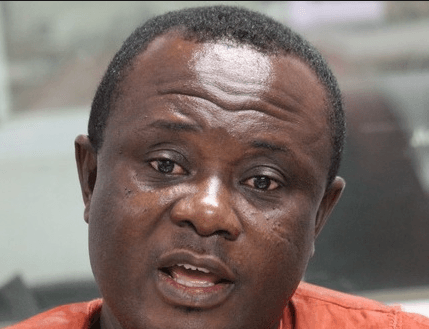
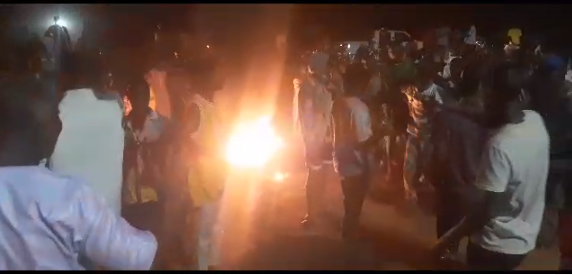
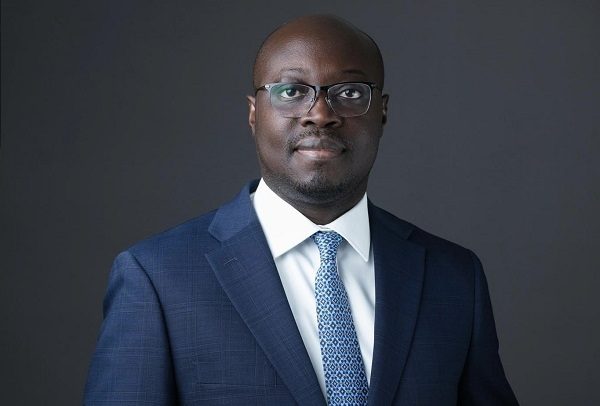

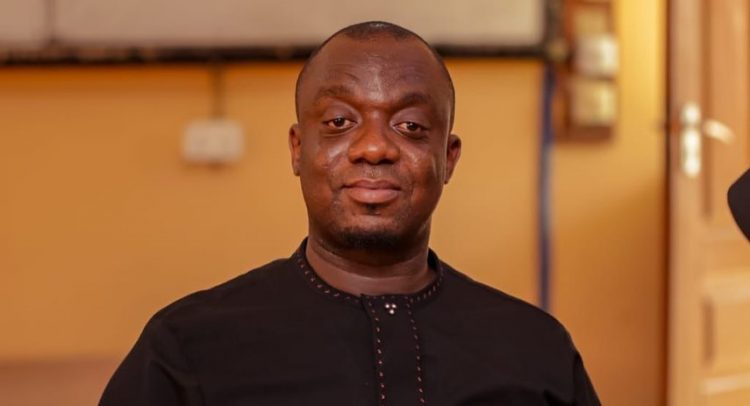

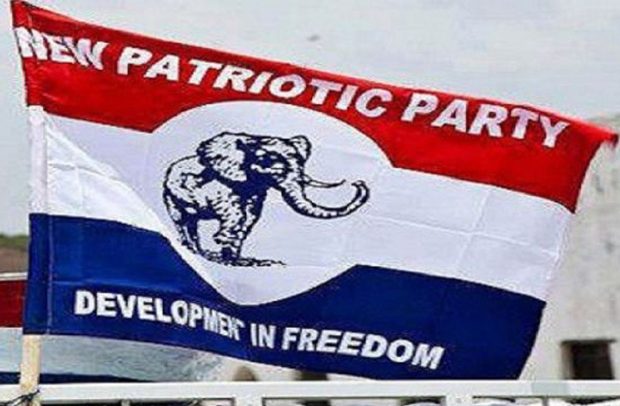
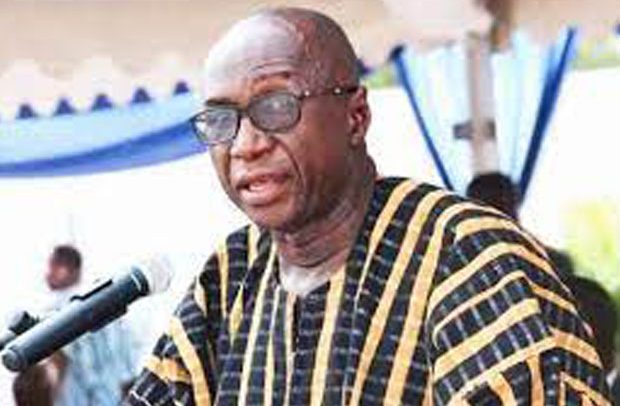
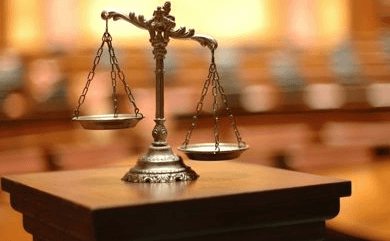
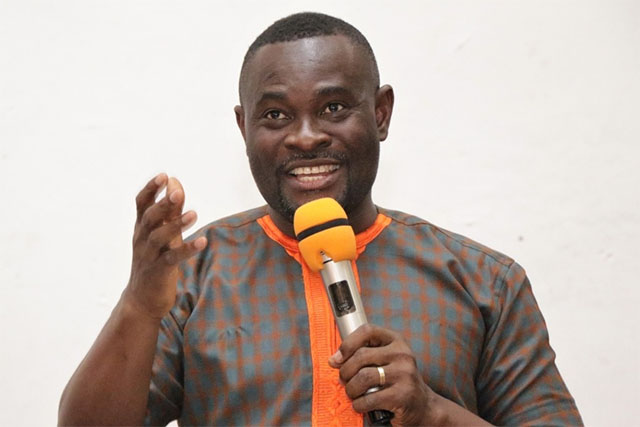

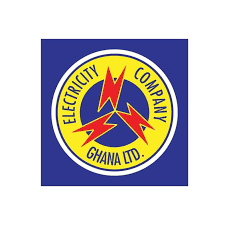

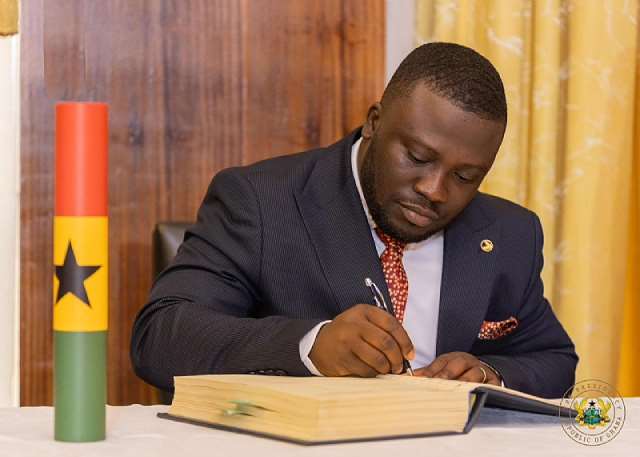

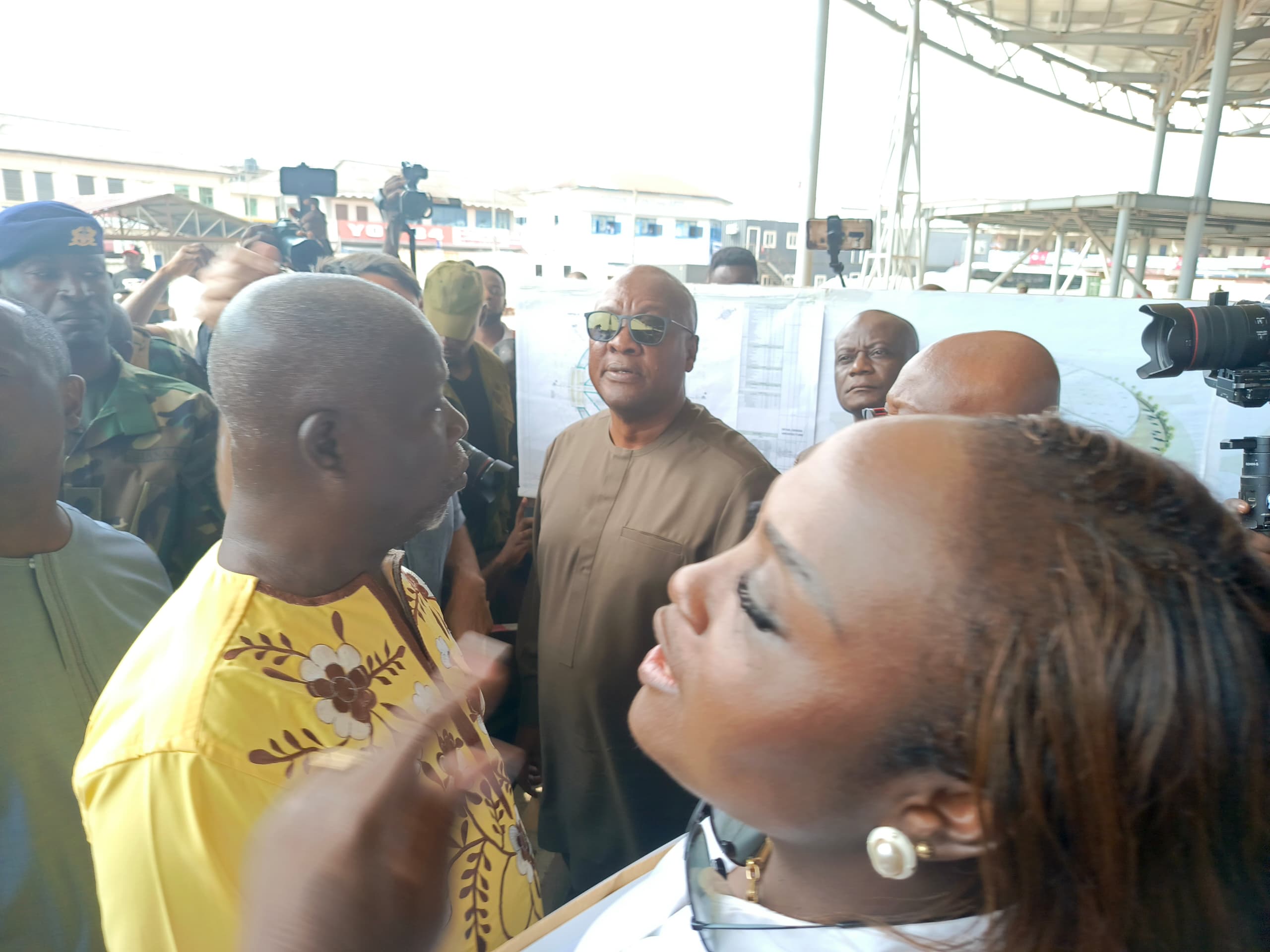






Facebook
Twitter
Pinterest
Instagram
Google+
YouTube
LinkedIn
RSS